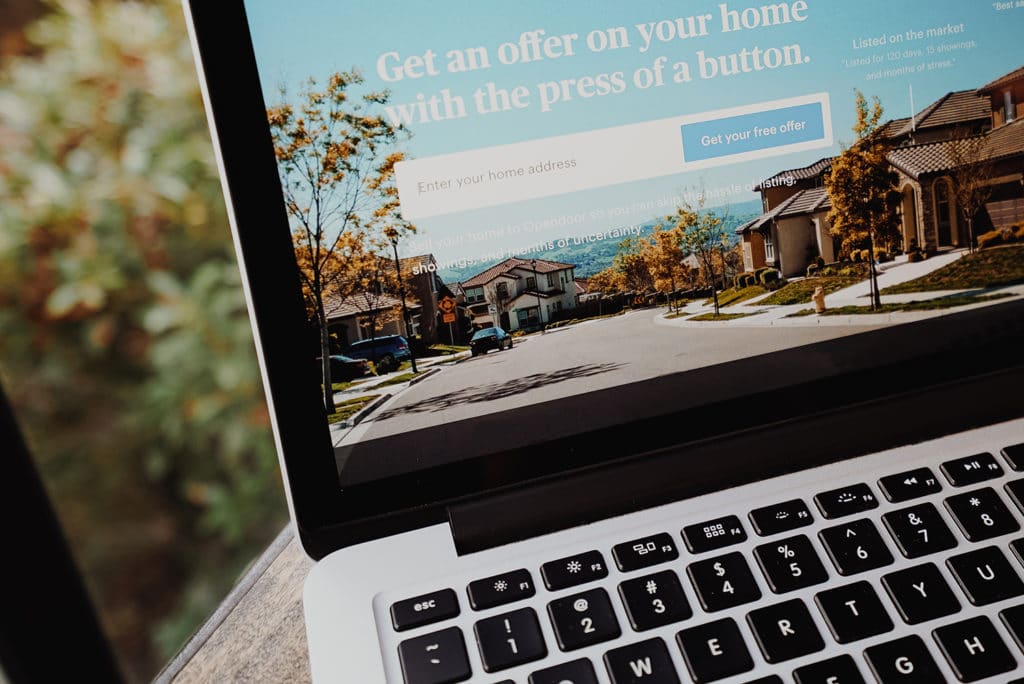To High-Tech And Back Again

In our fast-paced lives where we are all far too busy, technology offers some great solutions. You can order groceries from your phone, buy a car through an app, have food delivered to a sick relative, trade stocks, check out a book from the library, or take a yoga class all without leaving your living room. That’s great news for sure! And the trend seems to be towards more and more of these online or app-driven conveniences.
That’s why, last year, after working as a traditional real estate agent for almost ten years, I looked around and wondered, “What could I do to stay ahead of this trend towards tech-driven business?” The time seemed right to jump into the growing online real estate industry. Online brokerages have taken off in the past few years, offering efficiency, a “hassle-free” process, and reduced cost to home sellers and buyers. Win – Win – Win! So, I took a job with a tech-based real estate company, excited to see how I could utilize my skills and experience as an agent in this new realm. What I encountered in the next eight months had me running joyfully back to the traditional real estate model. But more of that to come.
Understanding the Technology Real Estate Landscape
Even if you’re not familiar with the tech real estate industry, you may have seen an advertisement from one of these companies, such as Knock, OpenDoor, or OfferPad. There are many of these start-ups attempting to reinvent the real estate industry. Each is slightly different, but usually promises the same results: less work and more money for you. They have large marketing budgets, teams of engineers and data analysts to determine home values, and sometimes real live agents for you to interact with. Sounds, awesome, right? But what do they do?
There are really two categories: i-buyers and what we will call the “discount brokerage.” The i-buyer is a company offering to buy your home from you without you ever having to put it on the market. These companies such as OpenDoor, Zillow Instant Offers, OfferPad and Redfin Now use investor dollars to buy your home from you and then they turn around and sell it on the open market. They offer you a price for your house, you agree, and just like that, you’re house is under contract. Easy! Some even front the money to purchase your new home for you, then put your house on the market after you’ve moved. You then pay for your new home with whatever you make off of the sale of your old home.
The discount brokerage is just that – they offer to represent you in the selling and buying process for a fraction of the cost of a traditional real estate agent. Once again they claim to offer personalized service from a real estate agent, reduced cost to you, and an easier buying and selling process. Some charge a reduced percentage rate of sale while others charge a flat rate. The prospect of selling your house at less cost can certainly be appealing.
A Closer Look At Claims:
Service
The truth is, some discount brokerages do offer real live agents to work with you. However, my experience at one of these national, high-tech real estate companies revealed to me the downside of this seemingly budget-friendly option. First, so much of the process is automated so that the agents can focus only on sales. For example, the value of your home is determined by complex algorithms. This might sound like a good thing, but often when these amounts are concluded by computers rather than people, they fail to consider less obvious factors. The algorithms may pull comparative pricing values from neighborhoods close by, but not like the one you are living in. They may not take into account the number of updates put into a house. And they may not consider added value for the park next door or the quiet location at the back of the subdivision. Second, the agent you are working with is driven entirely by numbers of transactions. During my time at one of these companies I was working with 20-30 clients at a time and the emphasis was always on numbers – more clients brought in and more deals closed was always the driving consideration. Even though I tried to still operate in a service mindset and I wanted the best for my clients, I was working twice the number of hours I had been working as a traditional agent and still I was unable to provide as much personal attention for my “clients” as I would have wanted.

Cost
When it comes to cost the convenience and affordability offered by i-buyers and discount brokerages doesn’t always pan out. For example, while a company may offer a 1.5% commission rate compared to the traditional 3% rate for the “same service,” you can be sure there will be corners cut somewhere. With i-buyers that promise to buy your house directly so you don’t pay commission, there are almost always hidden fees involved. These fees often range between 5-7% and have many different labels such as “service charge” or “convenience charge” – Surprise! When it comes to overall price of your house, an i-buyer’s offer is pretty much guaranteed to be $10,000 – $15,000 less than you would make in a traditional selling model (while some have reported offers to be off by more than $100,000 of appraised value). On top of this, many require you to pay for every single repair that appears on the inspection report (no matter how minor) with no opportunity to renegotiate. If the brokerage is offering to move you into your new house while they sell your old house you may stumble upon many more fees such as “holding fees” to cover the costs of maintaining your original home while it’s on the market and a high interest rate while they are covering the cost of your new home.
Cost Benefit Analysis
The answer is, of course, complicated. If you are willing to leave money on the table (maybe a lot of money) in exchange for convenience, then working with an i-buyer may be a reasonable choice. However, I’d suggest that working with a traditional real estate agent will land you a much better selling price for your home and will allow you the added benefits offered by a personal, relational business interaction.
After eight grueling months in the online real estate industry I left to return to a more traditional brokerage model. This may seem like a step backwards but I am more than ever convinced that the face-to-face service offered by a real estate agent can’t be outmoded by any amount of shiny new technology. Let me explain.
An Experienced Eye
Let’s consider a recent example of a house I walked through. It was a lovely home but there was some visible water damage caused by a past leak issue. The underlying issue had been completely fixed, but the cosmetic damages remained. One of the first things I would encourage a prospective seller to do would be to repair that visible damage. Even though it’s only cosmetic, I know that a buyer walking through might be scared off by signs of water damage and walk away. If this is the case the house could sit on the market for months and the sellers would likely have to decrease the cost by thousands. This home was listed by a discount brokerage and that agent definitely did not take the time to give this guidance to his sellers. The agent likely suggested pricing based on their algorithm-based analysis, perhaps sight-unseen. Now, you may not want to put in the little effort it takes to have someone fix a cosmetic issue like this, but an experienced agent will tell you that a failure to shell out the $200-$500 to fix a minor issue like this will likely cost you $5-$10,000 on your final sales price.
A traditional home sale will pay 6% of the final negotiated price to agents, split 50/50 between the buyer’s agent and the seller’s agent. The new tech companies will tell you that this is an outrageous amount. But keep in mind, they also may not be entirely forthcoming about the number of fees they will add on to the final sale of your house. And, the traditional agent, whether by offering advice on preparing and staging your home, individualizing a marketing plan, conducting extensive research on comparative pricing, or negotiating a contract can easily earn you more than double their commission cost in the final sales dollars you will more from your home.
In Conclusion
Buying a house is an investment. Selling a house should also be a carefully-considered investment strategy. Sure you can fast-track the process and maybe avoid a few headaches. Who really loves tidying and leaving their house on a Saturday afternoon so that an agent can show it to potential buyers? But, in the end, by choosing what seems to be a cheaper and more convenient path, you are likely losing money and sacrificing service.
I know that as a licensed real estate agent I may seem to bring more than a little bias to this conversation. But, I have experienced both sides of this market. And I can tell you beyond a shadow of a doubt that the service, attention, care, and value I am able to offer to the clients I work with now far surpasses the value offered by a discount brokerage or i-buyer. So, I may order my groceries online or pay my babysitter through an app, but I wouldn’t be willing to sacrifice money and service for one of the largest investments of my life. And I wouldn’t want this for my clients either.
